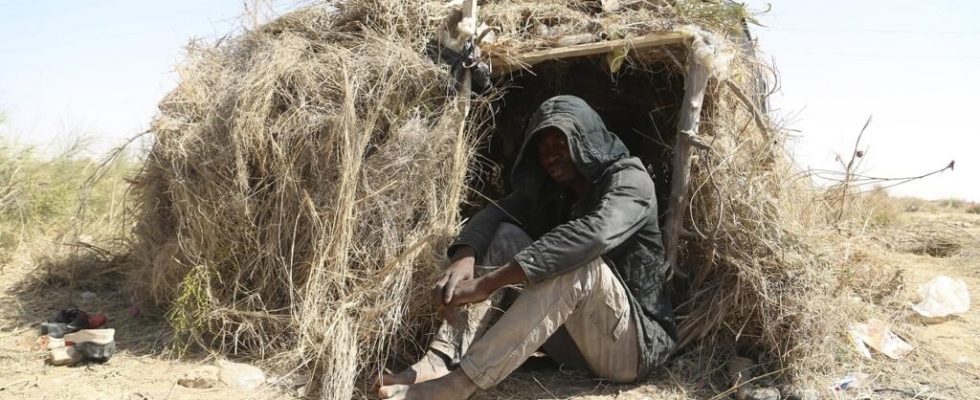Eight thousand five hundred migrants landed this week in three days in Lampedusa, more than the entire local population. The Italian island is less than 150 kilometers from the coast of Tunisia, the main departure country for migrant boats, where these latest developments are also closely scrutinized.
3 mins
With our correspondent in Tunis, Amira Souilem
On the newspaper of Al Wataniya, the Tunisian national television, we broadcast a report from a team of reporters who were able to follow the coast guards in an operation off the coast of Sfax. Their spokesperson recognizes that the situation is becoming difficult to control. “ If we make a comparison with last year’s figures for July and August, we realize that they have tripled in the space of a year. Last year, we had 8,000 people who attempted the crossing. There, we had 20,000 this summer, according to our figures “, he says.
While the Tunisian coast guard seems overwhelmed by the situation and while the weather is said to be mild these days, sub-Saharan migrants are taking to the sea in numbers. A situation which also makes the headlines of Mosaïque FM, a Tunisian radio station.
But looking more closely at the official Italian figures – more than 5,000 arrivals in Lampedusa in a single day on Tuesday – we see that the days preceding this peak were particularly calm. The cause: storm Daniel which made crossings very dangerous, creating a congestion phenomenon.
But for Wael Garnaoui, a researcher specializing in migration, other considerations also come into play. He believes that Tunisia is unable to cope with the migratory flows crossing the country. Especially since it is also facing a wave of internal departures, with Tunisians also leaving their country in the face of the economic and political crisis there.
The abortion of the partnership with the EU
Given the socio-political situation in Tunisia, the ongoing destabilization in several countries in the Sahel region and the war in Sudan, Wael Garnaoui expects the phenomenon to continue. As proof, he cites the proliferation of smuggling networks in the Sfax region where some fishermen have also converted to human trafficking.
This summer, the European Union had signed a partnership which aimed to financially support Tunisia in exchange for better regulation of migratory flows. A stillborn agreement for the Tunisian researcher. The latest developments in Lampedusa seem to prove him right.
The reactions of European leaders to this influx exceed Romdhane Ben Amor, spokesperson for the Tunisian Forum for Economic and Social Rights who was on the set of Mosaïque FM radio: “ The European Union is capable of managing these flows, however important they may be. Remember, it had been able to welcome hundreds of thousands of refugees after the war in Syria or Ukraine. The EU also has a responsibility to bear. There are people among migrants who must be protected, according to international law. This is the case of the Sudanese for example. There are many Sudanese among the migrants today who are fleeing the war. »
This Saturday evening, Kaïs Saïed gave new directives so that the situation in Sfax is brought under control.
Read alsoA (new) forum against the “anti-migrant policies” of Tunisia and the European Union
